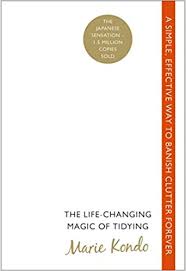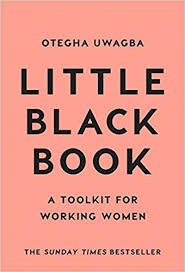I’m not here to bore the pants off you with an article about money, but I’m here to deliver a cold truth: no matter how much you dislike money and no matter how bad you are with it, your decisions about your finances will define your life much more than you’d like.
For the past two years, I’ve been investigating, researching and reading about money. I’ve read self help books, blogs, Facebook groups, investment literature, and the Financial Times (I know). I’ve learned some stuff about saving and spending, passive incomes and minimizing some aspects of my life to make them cost less. I’ve learned that I can be ethical while also making sure my future is secure.
I don’t like money, and I’m no millionaire. I work a 9-5 job. I teach yoga on the side. I sell some of my writing for small amounts of cash. I’m not a homeowner. So really, what I’m saying is: I’m totally normal. I’m not here to sell you something. I’m just passing on the best books I’ve read about money that have made my life better.
You’ll notice something. All of these books feature female authors, but just one is a person of colour. Generally speaking, women struggle to discuss money and to break through financial barriers both personally and professionally; it’s why Refinery 29 created the Money Diaries series and it’s why more and more women are taking to the page to talk about money. We’re not there yet in terms of representation, but we’ve come a long way since I was a little girl, dreaming about a Prince Charming to care for me because that’s all I knew.
Money: A User’s Guide by Laura Whateley
This is a book that’s premised on living in the Untied Kingdom, so perhaps is a better runner for readers from Europe at the very least. However, it’s also a great introduction to renting, mortgages, loans, savings, tax investments and even bills and insurance. If we all knew slightly more about what we’re spending our cash on (and why), we’d be able to make better choices, and Whateley’s book is a brilliant (and small) lump sum of knowledge. Pick a chapter you want to know more about, and dig in.
The No Spend Year, by Michelle McGagh
Michelle McGagh is a personal finance journalist, and undertook a ‘no spend year’ in an effort to cut down her mortgage. Along with her actual story of radical non-spending, she also outlines tips and tricks for addressing major money concerns and living a great life even with no cash in your pocket- from free events to clever holidaying, McGagh had a tough but extremely rewarding year. This one is for inspiration: start with a no-spend week!
The Year of Less by Cait Flanders
Cait Flanders was stuck in a lot of bad money debts when she set herself the challenge of not shopping for a year. This is different to McGagh’s experience because Flanders went for an all out change- decluttering her apartment, giving away her stuff and repairing things instead of replacing them, as well as looking into zero waste lifestyles. On top of that, Flanders found herself better able to deal with hardship when she didn’t have her old habits to rely on. This one is both an inspiration and super practical, especially if you’re in need of major change and aren’t sure how to even begin thinking about it.
 The Life Changing Magic of Tidying by Marie Kondo
The Life Changing Magic of Tidying by Marie Kondo
What, you ask? This has nothing to do with money? Bear with me. Marie Kondo’s book is a life changer because it makes you think more deeply about what you own, and why. Since reading it, I’ve been on a path to removing things from my life that I don’t need (except books. I can’t do it, I love them all too much). By re-jigging my thinking about my belongings, I started to enjoy the ones I have more, and buy new ones less. Also, my house is neat. It’s a double whammy of win.
The Index Card by Helaine Olen and Harold Pollack
Back in firm financial territory, The Index Card covers one chapter for each point on the 6×4 index card that Pollack wrote following a discussion with Olen about finance. Olen is one of Business Insider’s 50 Women Who Are Changing the World and she is renowned for her knowledge of public policy and money, in particular women’s financial issues. In truth, this book is good if you have some money to invest; otherwise, start with the others and build. You can read more about the Index Card idea here at the Washington Post.
 Little Black Book by Otegha Uwagba
Little Black Book by Otegha Uwagba
This is a book about career building and career maintaining; it’s no nonsense, practical and chock full of advice and experience. It’s not specifically about money-but it certainly encourages women to be active, empowered and commanding in the workforce. Every single woman deserves to receive and read this- from public speaking to freelance work, this is all about working to live and loving every second of it, so earning feels less of a labor.
Rioters! What books have you used to learn more about money? What tips do you have to share? Share them with me to aid my discoveries.










